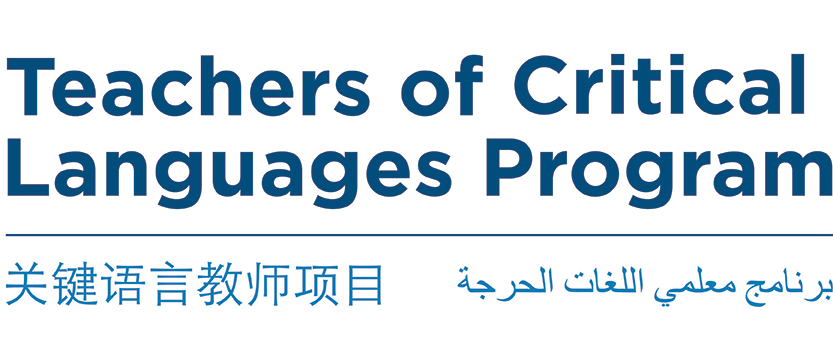The Teachers of Critical Languages Program (TCLP) is a multi-layered cross-cultural program. American Councils recruits and places English as a Foreign Language (EFL) teachers from People's Republic of China (PRC), Egypt, Morocco, and Taiwan within American secondary schools where they teach their native language and culture. Through TCLP, each party involved is positively impacted: American students develop appreciation for and fluency with the critical languages of Mandarin and Arabic, exchange teachers improve their English which intensifies the depth of their home school’s EFL curriculum, American and exchange teachers develop partnerships and share both resources and teaching methods, and all students and teachers form deeper understanding of others’ cultures. American Councils designs and implements an extended ten-day Orientation program that prepares exchange teachers for classroom teaching and life in America, provides their monthly stipends and medical insurance, and, in addition to on-going program monitoring and support, visits them at their U.S. communities throughout the year. TCLP is sponsored by the U.S. Department of State, Bureau of Educational and Cultural Affairs and implemented by American Councils for International Education.
What is TCLP?
The Teachers of Critical Languages Program (TCLP), sponsored by the Bureau of Educational and Cultural Affairs of the U.S. Department of State, is designed to increase the study and acquisition of important world languages in U.S. schools. This program enables primary and secondary schools to strengthen their teaching of Mandarin and Arabic by bringing teachers from People's Republic of China (PRC), Egypt, Morocco, and Taiwan to the U.S. to teach their native languages and culture for an academic year. The exchange teachers receive on-going methodological observation and training opportunities, live and work in an immersive English environment, and receive a certificate of participation following their exchange.
Goals
1) To introduce and expand the teaching of critical foreign languages in American primary and secondary schools, thereby improving the language skills of young Americans and motivating increased study of these languages.
American students learn Mandarin and Arabic and are motivated to learn them. There is near universal agreement that these languages, including English, will be critically important to know in the years to come.
2) To enable international teachers to learn first-hand about the culture and society of the United States, improve their English language proficiency, and to expand their knowledge of U.S. teaching methodologies.
Students in participants' home schools will have the opportunity to learn more about American culture and English language from their teachers when the international teachers return home; this effect expands as international teachers can share best practices and new methodologies with colleagues at their home schools, including through support of alumni grant opportunities.
3) To increase mutual understanding between U.S. school communities and visiting international teachers, and by extension, their home institutions and students.
Through the exchange between U.S. school communities and international teachers, each grows to understand and appreciate each other’s culture, especially as stories are shared throughout the communities.
4) To provide opportunities for U.S. and participant home schools to develop lasting ties and to share educational best practices. U.S. schools will have the potential to form partnerships with schools and home classrooms, expanding students’ horizons and promoting appreciation and understanding of international cultures.
Program Organizations
BUREAU OF EDUCATIONAL AND CULTURAL AFFAIRS, U.S. DEPARTMENT OF STATE (Sponsoring Organization)
The Bureau of Educational and Cultural Affairs (ECA) of the U.S. Department of State fosters mutual understanding between the people of the United States and the people of other countries to promote friendly, and peaceful relations, as mandated by the Mutual Educational and Cultural Exchange Act of 1961.
ECA accomplishes its mission through a range of programs based on the benefits of mutual understanding, international educational and cultural exchange, and leadership development. ECA engages youth, students, educators, artists, athletes, and rising leaders in many fields in the United States and more than 160 countries through academic, cultural, sports, and professional exchanges. ECA exchange program alumni encompass over 1 million people around the world, including more than 75 Nobel Laureates and more than 450 current and former heads of state and government.
AMERICAN COUNCILS FOR INTERNATIONAL EDUCATION (Implementing Organization)
American Councils for International Education is a premier, international nonprofit organization that strengthens international ties and mutual understanding through excellence in academic, professional and cultural exchange, language acquisition, educational development, and research. On a grand scale, these efforts strengthen international and national security, build prosperity, and promote peace.
